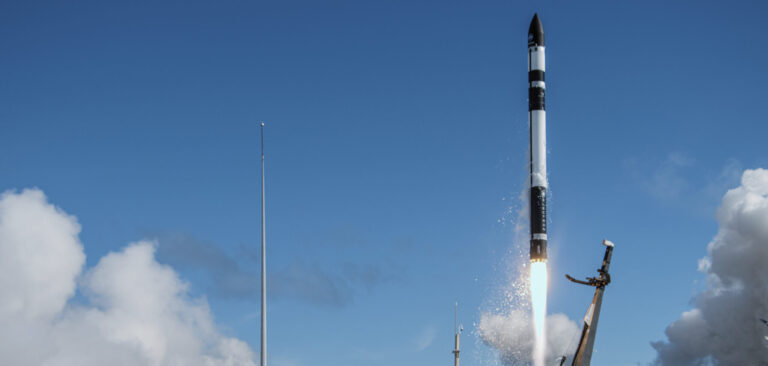NASA launched the first pair of CubeSats as part of a constellation designed to study tropical cyclones from Rocket Lab’s base in Māhia, New Zealand, on May 8, 2023.
The Time-Resolved Observations of Precipitation structure and storm Intensity with a Constellation of Smallsats (TROPICS) mission is a constellation of four identical CubeSats designed to observe tropical cyclones in a unique, inclined low-Earth orbit over Earth’s tropics – an orbit that allows them to travel over any given storm about once an hour. Current weather tracking satellites have a timing of about once every six hours.
NASA and Rocket Lab team members successfully sent commands to the first CubeSat at 1:48am EDT, May 8, before establishing communications with the second CubeSat at 6:31 am EDT.
Karen St Germain, director, Earth Science Division at NASA headquarters in Washington, said, “Providing more frequent imaging will not only improve our situational awareness when a hurricane forms. The data will provide information to models that help us determine how a storm is changing over time, which in turn helps to improve forecasts from our partners like the National Hurricane Center and Joint Typhoon Warning Center.”
Peter Beck, Rocket Lab founder and CEO, said, “The TROPICS constellation has the real potential to save lives by providing more timely data about storm intensity and providing advance warning to those in storm paths, so it’s an immense privilege to have deployed these spacecraft to their precise orbits before the upcoming storm season. We’re grateful to the NASA team for entrusting us with such a critical mission and we look forward to completing the constellation with the second Electron launch in the coming days.”
Ben Kim, TROPICS program executive for NASA’s Earth Science Division, said, “We are extremely proud of all our partners, including MIT Lincoln Labs, Blue Canyon Technologies, KSAT and Rocket Lab for successfully executing on this first launch. We look forward to the entire constellation being on-orbit to realize the benefits for the agency, as well as for our colleagues around the world.”
The second pair of TROPICS CubeSats is planned to launch aboard another Rocket Lab Electron rocket in the coming weeks. The second launch will be timed to insert the next two CubeSats into the TROPICS constellation.
The TROPICS team is led by principal investigator Bill Blackwell at Massachusetts Institute of Technology’s Lincoln Laboratory in Lexington, Massachusetts; and includes researchers from NASA, the National Oceanic and Atmospheric Administration (NOAA), and several universities and commercial partners.



